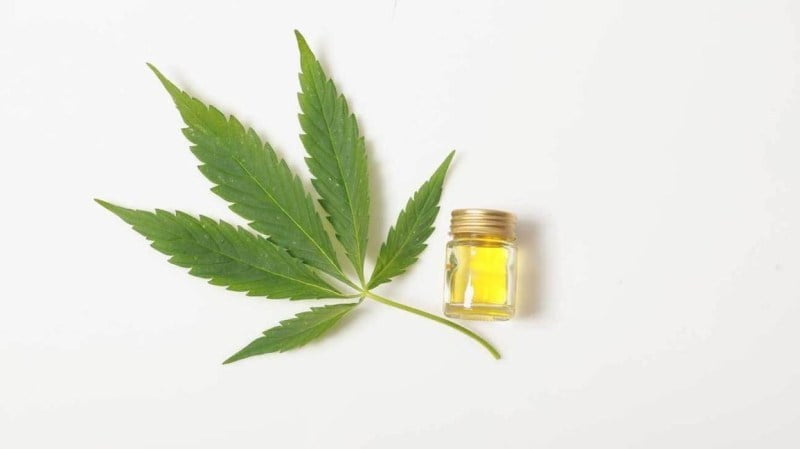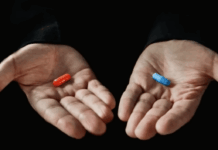
By Aashay
Cannabidiol has become immensely popular across the world, in the recent past. In previous years, it was used as an effective self-medication for Dravet syndrome in children. As of now, it is now used to treat wide range of medical conditions and lifestyle diseases. The cannabinoid CBD, a non-psychoactive isomer of the more infamous tetrahydrocannabinol (THC), is available in a growing number of administration modes, but the most commonly known is CBD oil. There are currently dozens, if not hundreds, of producers and sellers of CBD oils active in the market, and their number is increasing exponentially.
What is CBD?
Cannabidiol (CBD) oil is essentially a concentrated solvent extract made from cannabis flowers or leaves that is dissolved in edible oil such as sunflower, hemp, or olive oil.
Increasingly, CBD oil is also being promoted as a prophylactic treatment in order to prevent certain diseases from developing at all. The argument used is that the human endocannabinoid system is involved in basic life functions such as appetite, immune response, reproduction, and pain management. It is reasoned that the presence of CBD prevents from being overly activated, thereby protecting the nervous and immune systems from everyday stress. Furthermore, CBD is known to be a reasonably potent antioxidant, which further helps to protect against stressful influences
How can you differentiate between a Real and Fake CBD products?
Variety is great, but it can be pretty overwhelming. Even if you’ve used CBD before, it’s hard to tell which product of which brand is right and safe for you. The following are a few quick ways to help differentiate a fake CBD product from a real one.
• Fake CBD Oil May Use Misleading Labels. Be aware of companies that use “buzzwords” because it’s often used as a tactic to evoke emotion but offers little actual value.
• CBD Oil Third-Party Testing is a Must. Simply put, if there are no third-party lab tests, don’t buy it.
• Determine the CBD Oil Origin Source and Production Standards
• Make Contact with the Company. The best way to get the answers you’re looking for is to ask. If you have any questions, comments, or concerns, there should be a phone number or email you can reach out to for answers.
• Research Reviews. In the world of online digital sales, customer reviews are king. User testimonials over the website and search engines give you an insight into how a company works with its targeted audience.
How Can You Identify High-Quality CBD Oil?
CBD is an extract taken from cannabis plants. It is commonly extracted from agricultural hemp. Without making the person feel high, it offers abundant of health benefits. This all together makes it more versatile and less controversial to both users and the community.
But, at the same time, quality matters: unlike high grade CBD oil, the low grade CBD oil might not offer the same benefits because of a variety of factors, and it could even potentially contain harmful toxins.
Here are five ways to identify top quality CBD oil:
1. Before purchasing any CBD oil, research the vendor’s production methods. It is recommended to select the CBD processed through ethanol and/or supercritical CO2 extraction.
2. Look into where the CBD brand sources their hemp from. If available, try to find US grown hemp, as US farmers are required to get certified by state departments of agriculture.
3. The optimal level of THC present in CBD oils should not exceed more than 0.3%, so make sure that you check the labels or ask for lab results for the CBD oil before purchasing.
4. Check the labels on the product to determine if the manufacturer uses the whole plant in their products. Some brands use the term Whole Plant while others might use Full Spectrum.
5. Check for third-party lab results when buying quality CBD. A reputable brand of CBD oil should always have recent lab results available.
Proper labeling of CBD
In late 2017 Johns Hopkins University released a study on the quality of CBD oil. The study analyzed 84 CBD oil products sold by 31 companies and found that 70% of CBD oil products sold online were mislabeled.
Of the 84 CBD oil products only 30% of the products contained the proper CBD concentration labelled by the manufacturer, within a 10% margin of error.
Mislabeling is a major concern in the hemp industry. Mislabeling occurs for two reasons:
1. There is no standardized lab testing for CBD; however, organizations are working hard to establish standards.
The other larger reason is because,
2. There is no regulatory agency ensuring the quality and accuracy of product testing and labeling (organizations are working hard on this too).
Clarity is the only solution for the CBD market. Third-party testing is becoming more and more common. In fact, some of the industry’s largest producers have a reputation for putting their products through testing. Before ever bringing their products to market, they will ensure the potency and quality of their isolate, crude, oil, etc.
For example, Verified Life Cycle was established to counter the mislabeling issue. Verified Life Cycle (VLC) is a third-party verification unit created by Think Hempy Thoughts.
In the verification process, manufacturers are required to submit their batch records process together with their recall procedures. This process is time consuming especially for the ones who have stepped into the process of manufacturing.
However, it is essential for companies to safeguard their customers from poor quality products, for the sake of the consumer and the industry.
What should I look for when buying CBD?
Make sure before purchasing that these potential toxic elements are not present in the CBD oil:
1. The presence of propylene in CBD oil depends on the kind of preparation method that is used.
2. Contaminants, such as pesticides and synthetic cannabinoids, may be deliberately added to the CBD oil to increase yield, weight, or potency.
3. During the various stages of manufacture, storage, and distribution, unhygienic practices may lead to unwanted and unintentional contaminants, such as heavy metals, molds, bacteria, aflatoxins that may be very detrimental to health.
4. In many cases, the solvents used during the manufacturing process are harmful or toxic. Naptha and petroleum ether are harmful and flammable, and some solvents, such as hexane and benzene are, considered neurotoxic.
All in all, you need to be sure that your product was not cheaply manufactured.
Difference between CBD Oils for Humans and Dogs
The simple answer is that the CBD oil itself is typically no different, except in dosages, but the FDA does have different package labeling requirements for human supplements versus pet ones. Also, CBD oil for dogs often has flavouring to it, like bacon, to make it more appealing to the pooches and also use cod liver oil, which helps enhance the effects in canines.
Likewise for humans, CBD is non-psychoactive for dogs, but can go far in treating arthritic inflammation in those that are affected. It will relax the dog (or human), especially if made using high CBD cannabis versus hemp, but not to the point of passing out, unless you really give them a high dose. Consult a professional before titrating.
Source: https://www.shift.is
Disclaimer: We at Prepare for Change (PFC) bring you information that is not offered by the mainstream news, and therefore may seem controversial. The opinions, views, statements, and/or information we present are not necessarily promoted, endorsed, espoused, or agreed to by Prepare for Change, its leadership Council, members, those who work with PFC, or those who read its content. However, they are hopefully provocative. Please use discernment! Use logical thinking, your own intuition and your own connection with Source, Spirit and Natural Laws to help you determine what is true and what is not. By sharing information and seeding dialogue, it is our goal to raise consciousness and awareness of higher truths to free us from enslavement of the matrix in this material realm.
 EN
EN FR
FR

























